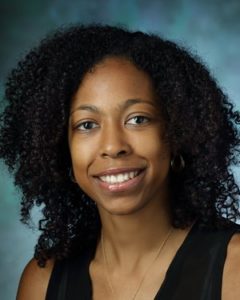Speakers: Casey Overby Taylor, PhD
 Casey Overby Taylor, PhD
Casey Overby Taylor, PhD
Assistant Professor of Medicine
Johns Hopkins Medicine
Dr. Casey Overby Taylor is Assistant Professor of Medicine and of Biomedical Engineering in Johns Hopkins School of Medicine (SoM). She has joint appointments in the Division of Health Sciences Informatics in the SoM and the Department of Health Policy and Management in the Johns Hopkins Bloomberg School of Public Health. Dr. Taylor’s research draws from biomedical informatics and the related field of biomedical data science, to address the challenge of how to incorporate technology and digital approaches into clinical research and healthcare practices. She also draws from comparative effectiveness research approaches, including experience with conceptualizing and measuring implementation outcomes, to investigate the use of clinical decision support as a strategy to improve the adoption of clinically actionable guidelines. Dr. Taylor has previously received funding from AHRQ to develop clinical decision support (CDS) using an implementation model that engages stakeholders and uses Web services for decision support (R21 HS023390 [Overby]). Factors identified from that work have informed her current work to enable tailored and multifaceted strategies to implement CDS. Feasibility is being studied through local and national collaborations, including the NIH-funded electronic medical records and genomics (eMERGE) Network where Dr. Taylor serves as co-Chair of the Electronic Health Records Integration Workgroup.
Precision Medicine Applications with Real World Data
Data from the healthcare delivery system as well as from other sources such as genomics research and digital devices are important drivers of precision medicine. The prospect of computational, model-driven guidance based on genomics and other personal data is growing as the clinical and research enterprise becomes more connected. The ability to implement innovative approaches to guide precision medicine delivery, however, relies on our ability to respond to a changing landscape of patient populations, data collection, data access, model-driven insights, etc. Open source Web services for clinical decision support (CDS) are a promising mechanism to deliver recommendations in a way that can change as evidence derived from multiple data sources matures. This talk will explore ways that data science, biomedical informatics, and implementation science research are helping to realize the potential to use open source Web services for CDS to deliver insights from real world data in a way that is clinically actionable.
